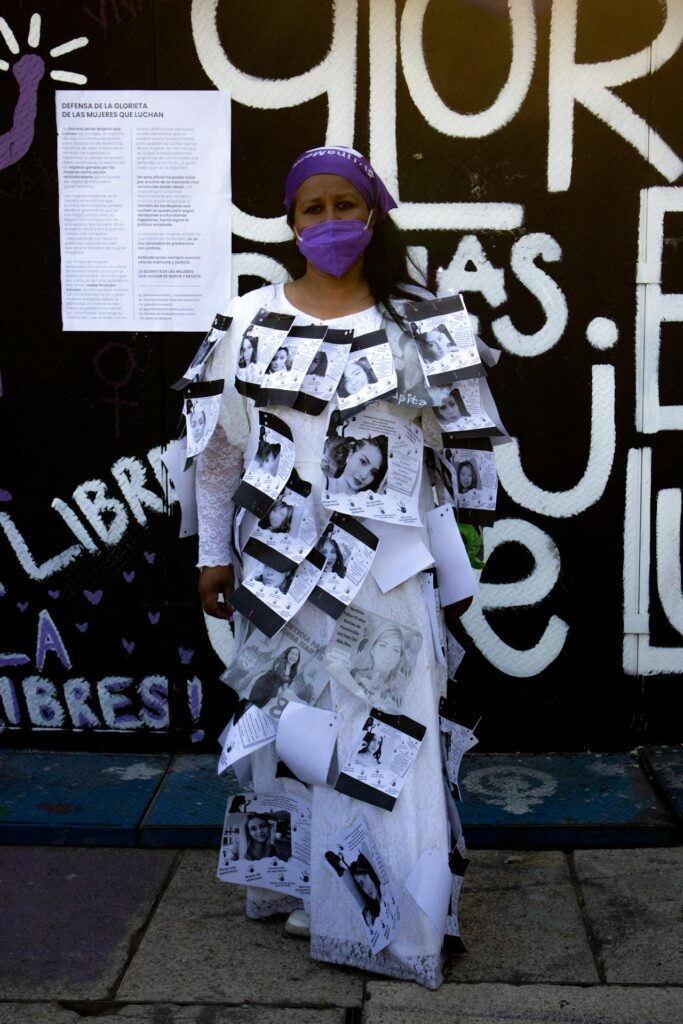The heart of Kenya has been battered. This is not due to the sweep of disease or war. An invisible epidemic is tearing through the lives of women and girls: Femicide. Across media channels and neighborhood whispers, the tragic stories flood in. Each one is more shocking than the last. Bodies are found randomly in remote ditches, fields, and quarries . They are victims of unthinkable violence. Every day, families are left in despair. They ask the same question: Why is this happening? Why are we not doing more to stop it?
Understanding Femicide: A Global and National Crisis
Femicide is defined by the World Health Organization (WHO) as the intentional killing of women and girls. This is solely because of their gender. In Kenya, the recent wave of femicide has reached unprecedented levels. Analysis shows that in 75% of these cases, intimate partners and family members perpetrate the majority of killings. This mirrors a global crisis that cuts across borders and cultures. Femicide includes intimate partner violence. It also involves “honor” killings, dowry-related murders, and killings linked to witchcraft accusations. Each case leaves a stain on society. It highlights the deep-seated sexism, misogyny, and devaluation of women’s lives embedded in social systems.
Femicide happens worldwide. Nonetheless, what makes Kenya’s situation distinct is the frequency and horrifying nature of these acts. These include stabbings, strangulation, mutilations, and even organ harvesting. The causes of death are horrific. The reasons behind them stay shrouded in mystery. Each case grows colder without justice or answers. The factors driving this epidemic are complex. Societal issues compound the situation. These issues are pervasive globally. Still, they are heightened by cultural, economic, and political pressures within the country.
The Alarming Trends and Cultural Triggers Behind Femicide
In Kenya, the rise of femicide has corresponded with economic disparities and evolving social norms. Today, we witness actions that are not just random acts of violence. They result from generational beliefs, economic hardships, and toxic power dynamics that put women in harm’s way. Many of these women are daughters, mothers, sisters, and friends. They unknowingly become targets of those who wield power over them.

Beyond Kenya, these acts are mirrored worldwide. Studies show that femicide is most often committed by intimate partners or family members, highlighting the danger within personal relationships. Globally, the practice of “honor” killings reveals the pervasive nature of violence against women. Dowry-related deaths further expose this issue. Trafficking schemes also show the insidious nature of Femicide as a crime.
A Wave of Femicide in Kenya: The Influence of Relationships and Desperation
From rural villages to urban nightlife, women face risks that sometimes prove fatal. Kenya’s youth culture has become especially vulnerable, with young women often viewing wealthy men as opportunities to escape financial hardship. Economic pressures drive many young women to seek financial security, and sadly, many of these relationships result in tragic endings. In one unforgettable documentary, young women in Nairobi’s nightlife detailed the motives they encounter. They revealed that behind every lavish lifestyle, there are men with darker intentions. Some men even view women as expendable.
Many who frequent these entertainment venues stay unaware of the lurking dangers. People who meet partners through dating apps also remain unaware of these exchanges. A heated argument or minor offense spiral into violence, leading to yet another headline of a woman’s body found. This “dating culture” is especially fueled by online platforms. It has often fostered superficial connections and impersonal encounters. These interactions sometimes end in mysterious disappearances or worse.
Causes Behind Femicide: Complex Forces in Play
- Patriarchal Norms and Economic Disparities
Femicide often stems from a history of patriarchy, where power dynamics skew against women. When men hold disproportionate power over women, the result is an environment where women are too easily seen as disposable. Additionally, economic pressures make young women increasingly vulnerable, as financial hardship drives some into relationships or encounters they otherwise avoid. Tragically, many men use this dependency to exploit women, with dire consequences. - Social Shifts and Female Empowerment
Femicide is fueled by another factor. Some men feel intimidated by the rise of female empowerment. Kenya has made strides in empowering the girl child. It advocates for her right to equal access to education, resources, and opportunities. However, a segment of men remains entrenched in outdated beliefs. These men are unable to accept that women now have the right to be educated. They can’t accept that women can express their opinions. Sometimes, women can outshine them. As Kenya evolves, some men see these advancements as threats. They react with anger and aggression rather than understanding. Empowerment, rather than being an obstacle, should be seen as a partnership opportunity. Men can choose to embrace this reality. They can listen to women, support them, and respect them as equal partners in society’s progress. - Cultural Beliefs and Harmful Traditions
Kenya’s social fabric is woven with certain traditions. Although these traditions are historically significant, they now contribute to harmful attitudes toward women. Practices that treat women as property or relegate them to lesser roles create an environment. This environment inadvertently allows violence against them. These entrenched beliefs allow violent actions to go unquestioned and unchecked, creating a cycle that is difficult to break. - Power Imbalances in Relationships
In Kenya, many femicide cases originate within intimate relationships, highlighting a disturbing reality about power imbalances. Relationships founded on control or manipulation rather than mutual respect often end in tragedy. Amid Kenya’s economic struggles, many young women face a harsh reality. They form connections with older, wealthier men out of financial need. These connections are rarely based on genuine affection. While not all relationships carry risk, many young women find themselves in dangerous situations. They are treated as disposable and fall victim to violence in moments of conflict. - Digital Era Dangers: Dating Apps and Online Encounters
The digital age has introduced a new frontier of risk. Dating apps and online forums offer instant access to strangers. This exposes young women to individuals whose true intentions stay hidden behind a screen. Many men using these platforms are not necessarily seeking genuine connections but rather brief encounters under the guise of romance. Too often, what begins as a casual meeting turns into something sinister, exposing women to unpredictable danger.
The Broader Effects of Femicide: A Society in Mourning
Each femicide case impacts families, communities, and the nation. It leaves grieving families behind. It traumatizes a society through this loss. These acts erode trust, fostering an environment where women feel unsafe in their neighborhoods, schools, and workplaces. The social cost of femicide is severe. It casts a dark shadow over Kenya’s progress and development. This issue tarnishes the sense of security that every individual has a right to expect.
Effective Strategies to Combat Femicide
The fight against femicide cannot succeed with isolated efforts; it requires a united, multi-layered approach. The following strategies are essential to addressing the root causes of femicide and fostering an environment where all people can thrive equally:
- Education and Awareness
Public awareness campaigns must challenge harmful beliefs. They should tackle toxic masculinity. These campaigns aim to promote a society based on mutual respect and equality. Education on the value of women’s rights and gender equality is crucial to changing deep-seated views that devalue women. - Strengthening the Legal System
Kenya’s justice system must prioritize femicide cases with stricter legal consequences and an emphasis on accountability. This will only be effective if all perpetrators face certain and swift consequences. Such measures will demonstrate that Kenya does not tolerate the abuse or murder of its women and girls. - Economic Empowerment for Women
Kenya can reduce financial vulnerability by supporting economic empowerment programs. Reducing financial vulnerability helps prevent women from entering dangerous relationships. Giving women the tools to be economically independent creates a safer environment where they can make choices without financial pressure. - Support Systems for Women
Kenya must increase access to safe spaces. Counseling and social services are also needed to help women in unhealthy relationships and at-risk situations. Such support not only protects women, but it also creates a culture. In this culture, they can seek assistance without fear of judgment or reprisal. - Engagement with Men and Boys
It is essential to teach boys and men about respect from an early age. They should also learn about healthy relationships and non-violent communication. This education is crucial to curbing future cases of femicide. Men must become active participants in this movement, standing up against violence and challenging harmful attitudes within their communities.
A Call for Unity and Action
Femicide is a complex and deeply rooted issue that requires a multifaceted approach. By addressing its root causes, Kenya can create a safer society. These causes include outdated cultural norms, economic disparities, and harmful societal beliefs. In doing so, women and girls will be valued, respected, and shielded from violence. Government agencies must collaborate with civil society. Community leaders should unite to focus on the eradication of femicide. They must guarantee justice and equality for all.
As a country, Kenya has a responsibility to confront these forces that undermine the dignity of its women. Each story of a life lost reminds us of our duty to do better. Femicide is a threat to Kenya’s future. Addressing it with urgency, empathy, and unwavering commitment is essential. This is needed to create a society where all women can live without fear. Through our collective efforts, let us strive to break the cycle of violence. We must make sure that future generations inherit a world defined not by fear, but by respect, equality, and peace.
Now we stands at a critical juncture. We have an opportunity to rise against this growing tide of violence. We can restore peace, dignity, and hope to our society. Let the stories of these women ignite a change that extends beyond hashtags and headlines; toward a tangible, protective transformation.
It is time to protect, to demand a safer world for our sisters, daughters, and mothers. Together, we can change the narrative. We will honor the memory of every woman lost to this epidemic. We must guarantee her death sparks the movement needed to protect every woman. So future generations inherit a society where such violence is unthinkable. It is a dream that can only come true if we act today.





This article paints a vivid picture of the brutal and tragic experiences women are facing, and the urgent need for society to address this crisis head-on. Well articulated.
Thank you and Indeed the sad reality is that despite these experiences facing these women no great efforts are being made to curb these cases not from the government or anyone whereas it is our collective objective to ensure their safety not just them but that of every living person.
That’s tragedy I hope the government does something before it’s too late..ahh thanks once again for always informing the society at large